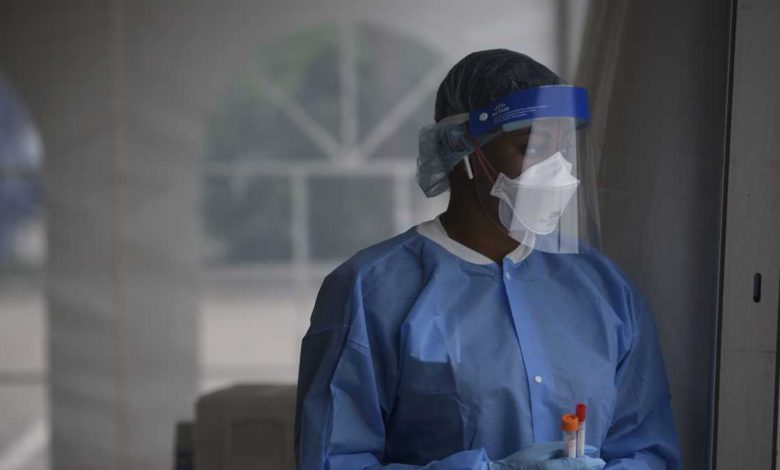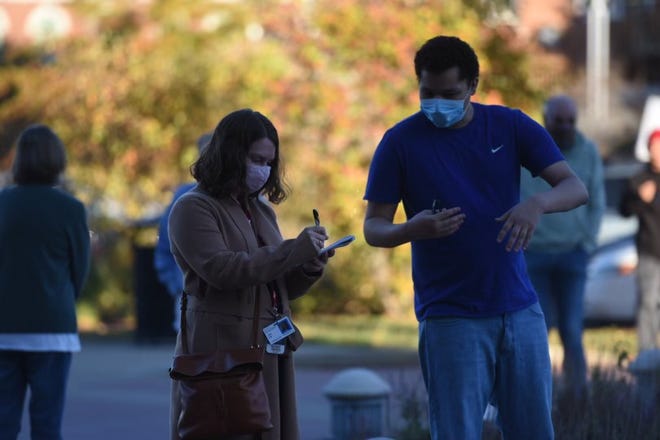

Video above: Do's and Don'ts for people looking to dodge delta COVID-19 variantCOVID-19 hospitalizations are reaching all-time highs in parts of the South, with some patients unable to get the care they would normally receive.Susan Walker has been calling out-of-state hospitals trying to get help for her husband, who did not get vaccinated against COVID-19 and is now in a medically induced coma."He is on a ventilator and in dire need of an ECMO treatment, which is not available at the hospital that he is in," the Florida mother said Sunday."All the beds are taken up by COVID victims also getting ECMO."An ECMO treatment uses external machinery that can function as the heart and lungs. It's been used with some severely ill COVID-19 patients, including young adults."We have searched every hospital from the south of Florida to the north part of Florida" trying to find availability, Walker said."To transfer him to a hospital in Florida is next to impossible."Across the country, states are struggling to fend off the delta variant — the most contagious strain of coronavirus yet.But the situation in particularly worrisome in several Southern states.Louisiana set a new record for COVID-19 hospitalizations last week.Florida's hospitalizations recently jumped 13% above the state's previous peak on July 23, 2020, according to a survey by the Florida Hospital Association.The FHA said it expects 60% of the state's hospitals to face a "critical staffing shortage" by this week.And at Houston's United Memorial Medical Center, "We have no beds. The emergency department is full of patients just waiting to be able to get into the hospital," Chief of Staff Dr. Joseph Varon said Sunday morning."Over the last 12 hours, we have lost more patients than ... in the last five to six weeks."According to data published Sunday by the U.S. Centers for Disease Control and Prevention, 50.1% of the total U.S. population is now fully vaccinated — more than 166 million people.As of Sunday, Mississippi has fully vaccinated 35.2% of its residents. That makes Alabama — with 34.8% of its residents fully vaccinated — the only state in the U.S. to have fully vaccinated less than 35% of its residents.The seven-day average of doses administered each day is now 706,323 doses, per the CDC data, and an average of 449,000 people are initiating vaccination each day.More hospitalizations and deaths expectedThe U.S. now is averaging more than 100,000 new COVID-19 cases every day — the highest in almost six months, according to data from Johns Hopkins University.Because it can take days or weeks for some COVID-19 cases to lead to hospitalization or death, doctors are bracing for an ugly repeat of scenes from 2020."It's bad. For me, this is a deja vu of what we had last year," Varon said."And the worst part about this is this was foreseeable. And this was preventable. So not only are (we) exhausted, we're annoyed. And we're annoyed because people are not doing the right thing."The vast majority of those getting hospitalized with or dying from COVID-19 are not fully vaccinated, Dr. Rochelle Walensky, the director of the CDC, said last week.And Americans who have already had COVID-19 shouldn't assume they don't need a shot.For adults previously infected with COVID-19, vaccines give better protection against reinfection than natural immunity on its own, according to a CDC study published Friday.The study suggests people who got COVID-19 in 2020 and didn't get vaccinated were more than twice as likely to be reinfected in May or June 2021, compared with people who also had COVID-19 but were later fully vaccinated."If you have had COVID-19 before, please still get vaccinated," Walensky said Friday.There is no minimum time to wait between recovering from COVID-19 and getting vaccinated, the CDC said."Getting the vaccine is the best way to protect yourself and others around you," Walensky said, "especially as the more contagious delta variant spreads around the country."
Video above: Do's and Don'ts for people looking to dodge delta COVID-19 variant
COVID-19 hospitalizations are reaching all-time highs in parts of the South, with some patients unable to get the care they would normally receive.
Susan Walker has been calling out-of-state hospitals trying to get help for her husband, who did not get vaccinated against COVID-19 and is now in a medically induced coma.
"He is on a ventilator and in dire need of an ECMO treatment, which is not available at the hospital that he is in," the Florida mother said Sunday.
"All the beds are taken up by COVID victims also getting ECMO."
An ECMO treatment uses external machinery that can function as the heart and lungs. It's been used with some severely ill COVID-19 patients, including young adults.
"We have searched every hospital from the south of Florida to the north part of Florida" trying to find availability, Walker said.
"To transfer him to a hospital in Florida is next to impossible."
Across the country, states are struggling to fend off the delta variant — the most contagious strain of coronavirus yet.
But the situation in particularly worrisome in several Southern states.
Louisiana set a new record for COVID-19 hospitalizations last week.
Florida's hospitalizations recently jumped 13% above the state's previous peak on July 23, 2020, according to a survey by the Florida Hospital Association.
The FHA said it expects 60% of the state's hospitals to face a "critical staffing shortage" by this week.
And at Houston's United Memorial Medical Center, "We have no beds. The emergency department is full of patients just waiting to be able to get into the hospital," Chief of Staff Dr. Joseph Varon said Sunday morning.
"Over the last 12 hours, we have lost more patients than ... in the last five to six weeks."
According to data published Sunday by the U.S. Centers for Disease Control and Prevention, 50.1% of the total U.S. population is now fully vaccinated — more than 166 million people.
As of Sunday, Mississippi has fully vaccinated 35.2% of its residents. That makes Alabama — with 34.8% of its residents fully vaccinated — the only state in the U.S. to have fully vaccinated less than 35% of its residents.
The seven-day average of doses administered each day is now 706,323 doses, per the CDC data, and an average of 449,000 people are initiating vaccination each day.
More hospitalizations and deaths expected
The U.S. now is averaging more than 100,000 new COVID-19 cases every day — the highest in almost six months, according to data from Johns Hopkins University.
Because it can take days or weeks for some COVID-19 cases to lead to hospitalization or death, doctors are bracing for an ugly repeat of scenes from 2020.
"It's bad. For me, this is a deja vu of what we had last year," Varon said.
"And the worst part about this is this was foreseeable. And this was preventable. So not only are (we) exhausted, we're annoyed. And we're annoyed because people are not doing the right thing."
The vast majority of those getting hospitalized with or dying from COVID-19 are not fully vaccinated, Dr. Rochelle Walensky, the director of the CDC, said last week.
And Americans who have already had COVID-19 shouldn't assume they don't need a shot.
For adults previously infected with COVID-19, vaccines give better protection against reinfection than natural immunity on its own, according to a CDC study published Friday.
The study suggests people who got COVID-19 in 2020 and didn't get vaccinated were more than twice as likely to be reinfected in May or June 2021, compared with people who also had COVID-19 but were later fully vaccinated.
"If you have had COVID-19 before, please still get vaccinated," Walensky said Friday.
There is no minimum time to wait between recovering from COVID-19 and getting vaccinated, the CDC said.
"Getting the vaccine is the best way to protect yourself and others around you," Walensky said, "especially as the more contagious delta variant spreads around the country."
Source link








